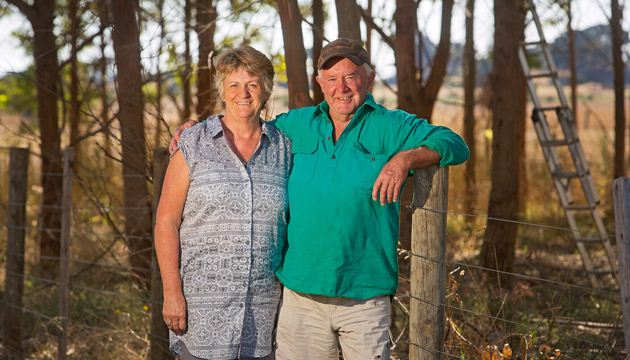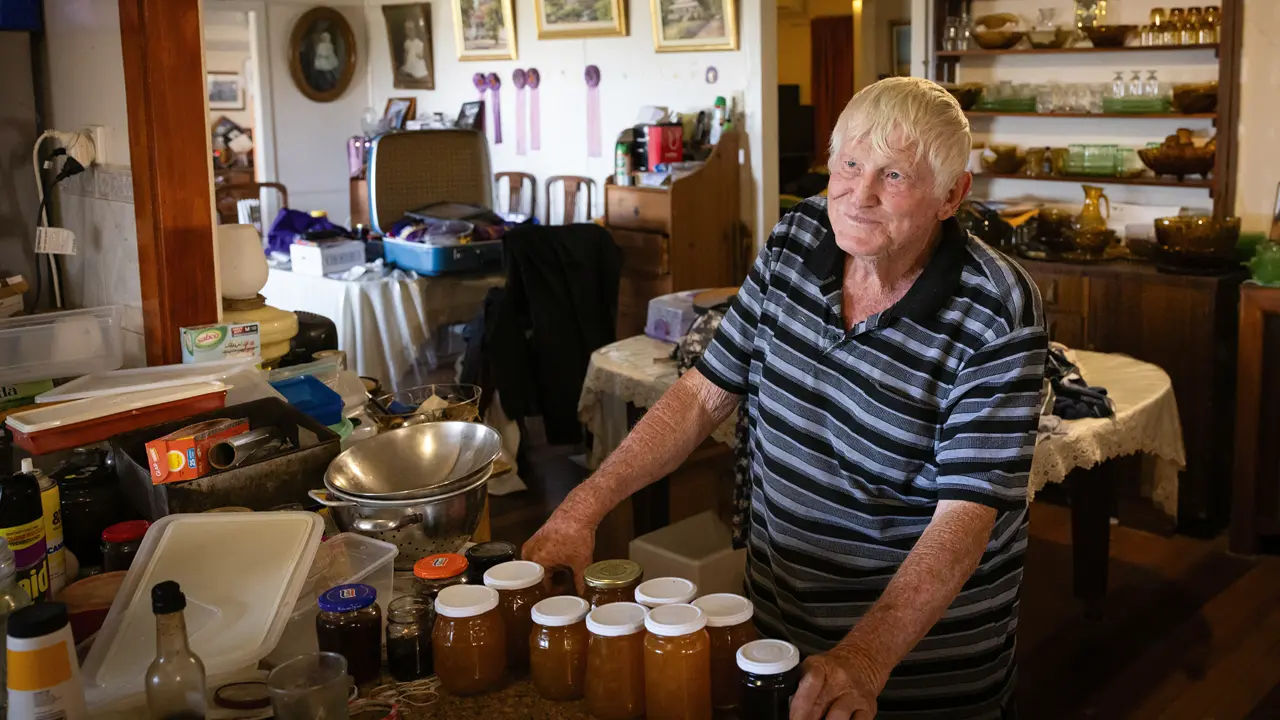A connection to nature and family land has helped Doug Lang through the battle of his life.
Story and photos Nathan Dyer
On a warm autumn afternoon, Doug Lang sits at the kitchen table on his Balintore farm and tucks into freshly baked zucchini slice. On the wall, an old black-and-white photograph shows his grandfather sitting on a horse, a mob of cattle around him.
“He wrote everything down,” says Doug of his grandfather Archibald Lang, who managed the family property near Colac, on the edge of Victoria’s fertile Western Districts, in the early 1900s. Archie’s diaries, covering everything from cattle sales to house extensions, are now a family heirloom for the Langs, who have been on Balintore since 1897.
For Doug, the gift of writing is an inheritance that has been life-saving. His book, The Nature of Survival, published last year, tells the story of his lifelong battle with mental illness and how a connection to land, nature and family has sustained him.
The youngest of five children, Doug always knew something wasn’t right with his mental health. “I started having thoughts when I was seven or eight – maybe even younger – dark thoughts all the time, and it was pretty scary,” he says. When he was 14, Doug was advised by a local GP to ‘snap out of it’. “And when someone tells you that – to stop having thoughts – well you just have more,” he says.
He left school soon after, had a stint milking cows with his father, William, on Balintore, and then met and married Cheryl, a farm girl and trainee nurse at Colac hospital. The couple started a family, first Simon, then Ryan and Billy, and, finally, twin girls Rebecca and Christy. As the kids grew, the family moved back and forth between Victoria and Queensland, Doug worked various jobs, Cheryl nursed, and they coped. There were ups and downs with Doug’s mental health, but mostly life was good. “But I was always pretty restless, always searching for something,” Doug says.
In 1997, with the twins in Year 6, Doug decided he wanted to head north again, this time to Darwin. He landed a job at Jabiru and moved out ahead of the family, who settled into the capital. Things were looking positive. “I was feeling good, so I decided I didn’t need my medication anymore,” Doug says. “And everything hit the fan real quick.” He lost the job, his mental health declined and the decision was made to return home. Life settled down again and for four or five years, happiness returned. But the demons resurfaced.
“I was drinking a lot. It didn’t matter what time of day. And the depression was pretty bad,” Doug says. He lost another job and things turned from bad to worse. “My self-esteem had gone right down because I was home, I didn’t have a job and I thought I’d failed at everything.” He kept drinking, overdosed more than once, and spent the next few months in and out of hospital. Cheryl tried to keep the family together and get the twins through Year 12 but, in the end, it was too much.
“Two days after the third overdose, when he’d been airlifted to Melbourne, the hospital rang to say he needed to be picked up,” Cheryl says. “But I said, ‘No’.” That decision, Cheryl says, to effectively cut Doug off, was one the hardest of her life. “I was looked on as a really bad person not to take him home again, but I said, ‘You’re not coming home while you’re drinking’.”
Doug moved in with his sister Cynthia in Colac. Then a phone call from a friend started a chain of events that saved his life. The friend suggested Doug attend Alcoholics Anonymous. Within three weeks he’d stopped drinking. Then another mate, Mike, suggested Doug help with planting some trees on his bush block. For the next month Doug planted trees, saw his psychologist regularly, and kept off the booze.
“After a while my head started to clear and I started to get some focus, and it gave me an inch of self-esteem, knowing I was out there doing something worthwhile again,” Doug says. “And that’s when I thought I could plant some trees on our place, so I did, and the more I planted, the better I felt, and the better I felt, the more I planted.” It was then that he first thought about writing a book, using the notes he’d scribbled down for years.
This story excerpt is from Issue #114
Outback Magazine: August/September 2017










